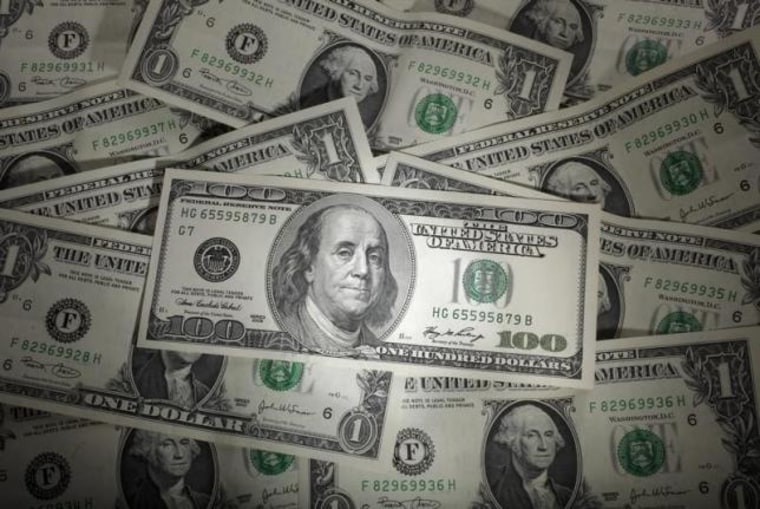Two-thirds of Americans would have difficulty coming up with the money to cover a $1,000 emergency, according to a poll released Thursday, a signal that despite years of recovery from the Great Recession, Americans' financial conditions remains precarious as ever.
These financial difficulties span all income levels, according to the poll conducted by The Associated Press-NORC Center for Public Affairs Research. Seventy-five percent of people in households making less than $50,000 a year would have difficulty coming up with $1,000 to cover an unexpected bill. But when income rose to between $50,000 and $100,000, the difficulty decreased only modestly to 67 percent.
Read More: Middle Class in Major U.S. Cities is Shrinking, Pew Study Says
Even for the country's wealthiest 20 percent — households making more than $100,000 a year — 38 percent say they would have at least some difficulty coming up with $1,000.
"The more we learn about the balance sheets of Americans, it becomes quite alarming," said Caroline Ratcliffe, a senior fellow at the Urban Institute focusing on poverty and emergency savings issues.
Harry Spangle is one of those Americans. A 66-year-old former electrician from New Jersey, Spangle said he thought he would always have a job and "lived for today" but lost his job before the downturn. He said he would have to borrow from friends or family in order to cover an unexpected $1,000 expense.
Read More: Americans Upbeat About Their Own Finances. The Country's, Not So Much
"I have a pension and I am on Social Security, but it's very limiting," he said. "It's depressing."
Having a modest, immediately available emergency fund is widely recognized as critical to financial health. Families that have even a small amount of non-retirement savings, between $250 and $749, are less likely to be evicted from their homes and less likely to need public benefits, an Urban Institute study found.
"People are extremely vulnerable if they don't have savings," Ratcliffe said. "And it's a cost to taxpayers as well. Lack of savings can lead to homelessness, or other problems."
